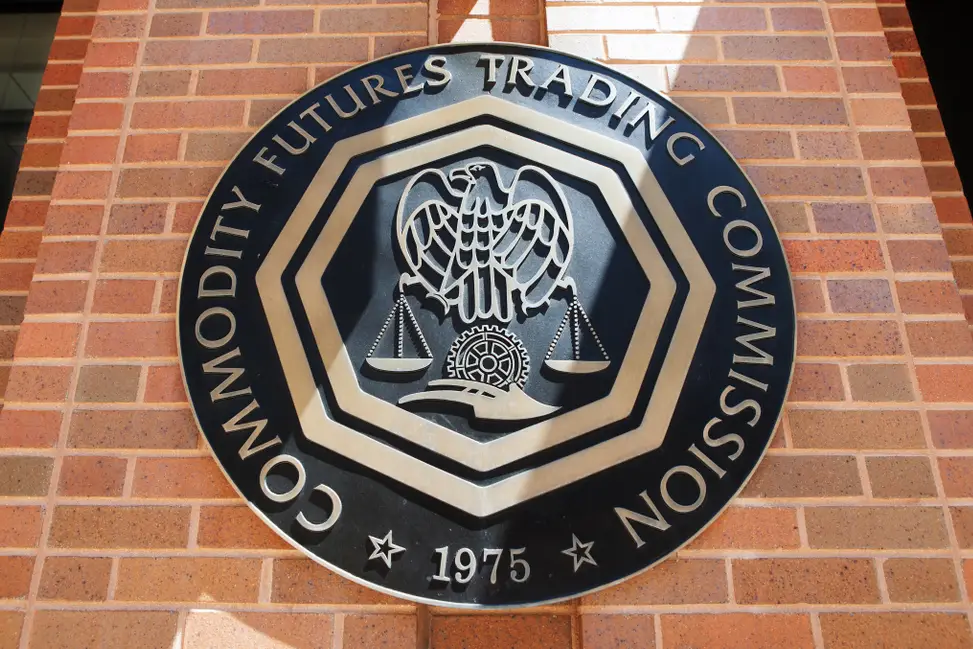Brian Quintenz’s nomination to chair the Commodity Futures Trading Commission (CFTC) has been met with a complex and divided response from the crypto industry. While government officials and key crypto figures like the Winklevoss twins, who head the prominent crypto exchange Gemini, have voiced opposition, a coalition of leading crypto associations released a joint letter to Trump in support of his decision to appoint Quintenz as CFTC chair.
A vote to advance Quintenz’s nomination out of the Senate Agricultural Committee was canceled twice so far as speculation and questions swirl around his ties to the CFTC-regulated prediction market exchange Kalshi. His confirmation remains in limbo with Congress on August recess until Sept. 9.
Key digital asset groups rally in Quintenz’s support
In stark contrast to the backlash, a coalition of seven leading digital asset industry associations released a joint letter to President Trump on August 20, reiterating their support for Quintenz to chair the CFTC.
The letter highlighted Quintenz’s “deep expertise, sound judgment, proven leadership, and integrity” as well as his understanding of digital assets as a “foundational technology” essential to US economic leadership.
The letter stated:
“Mr. Quintenz possesses a singular capacity to advance sound and clear regulation that will foster responsible growth and innovation. He is, quite simply, the right person at the right time to lead the CFTC.”
The seven crypto/DeFI organizations that signed off on the letter include:
- Crypto Council for Innovation (CCI)
- Blockchain Association
- Decentralization Research Center
- DeFi Education Fund
- The Digital Chamber
- Satoshi Action Fund
- Solana Policy Institute
Quintenz’s CFTC nomination takes a turn
In February 2025, President Trump nominated Quintenz to head the CFTC; however, his vote in the Senate Agriculture Committee was canceled twice in July, with the vote’s second cancellation coming in at the request of the White House, according to a Bloomberg report.
Quintenz’s nomination was followed by much opposition from the broader crypto community, key industry players, and government officials amid the former Commissioner’s ties to Kalshi as well as his stance on developer liability, Markus Levin, the co-founder of XYO, a decentralized network that collects and validates real-world data, told Prediction News.
Levin explained that Quintenz’s past arguments around developer liability have resurfaced within the community following Tornado Cash developer Roman Storm’s awaited jury verdict in the U.S.
“[This] highlights a growing tension over whether open-source developers should be prosecuted for how others use their code.”
Other key industry players, such as Tyler Winklevoss of Gemini, expressed concerns over Quintenz’s support for expanding the CFTC’s budget and authority as the agency takes on more crypto oversight, risking regulatory capture.
Furthermore, a letter filed by Rep. Dina Titus cited a Freedom of Information Act (FOIA) request, originally reported by Dustin Gouker at The Closing Line, which revealed emails showing that Quintenz, while still a board member at Kalshi, sought information from CFTC staff about Kalshi’s competitors, raising concerns about a potential conflict of interest and casting doubt on his ethical pledge. Titus aired her concerns in an Aug. 4th X post:
As co-chair of the Congressional Gaming Caucus, I am urging the @CFTC to investigate @BrianQuintenz, as the Senate considers his nomination for Chair of the CFTC.
Quintenz is currently on the board of Kalshi and holds stock options in the company, which is regulated by the…
— Dina Titus (@repdinatitus) August 4, 2025
Back in May, Quintenz himself said in a letter to a CFTC ethics official that he would step back from his role at the company, forfeit all unvested stock options, divest his vested stock and stock options within 90 days of his confirmation, and recuse himself from any matters involving Kalshi for one year.
CFTC’s stance on prediction markets & Polymarket’s comeback
Historically, the CFTC held prediction markets under tight regulatory oversight amid concerns over them treading into “illegal gambling” territory. Polymarket’s planned re-entry into the US market has helped lift sentiment. According to Levin, this move is “unmistakably positive for the US, and the Web3 industry as a whole.”
Acting CFTC Chairman, Caroline Pham, has taken a more lax approach towards prediction markets, calling past actions against them a “sinkhole of legal uncertainty and an inappropriate constraint on the new Administration” as the U.S. moves towards securing its place as the next “crypto hub.”
XYO’s Levin noted that following recent events, the real question may not be around who heads the CFTC but whether the agency itself can rebuild trust and deliver regulatory clarity without entrenching perceived conflicts of interest.
“The CFTC regulates Kalshi, and while Quintenz has said he would step down if confirmed, some in the industry remain concerned. The core issue is whether he can remain impartial and act in the best interest of the broader prediction market ecosystem, given his ties to a company under direct CFTC oversight.”
When Congress returns on Sept. 9, Quintenz will be among a backlog of 150-plus pending nominees to be addressed, according to Politico.
“Republicans now expect to pursue rules changes that would cut down on the amount of time needed to confirm Trump’s picks, but only after the summer break ends after Labor Day.
“…It’s not clear whether Republicans will pull the trigger as soon as they return in September or wait until after a Sept. 30 government funding deadline, lest the the standoff complicate spending talks. In any case, several GOP senators said they believe an eventual rules change is inevitable.”

























